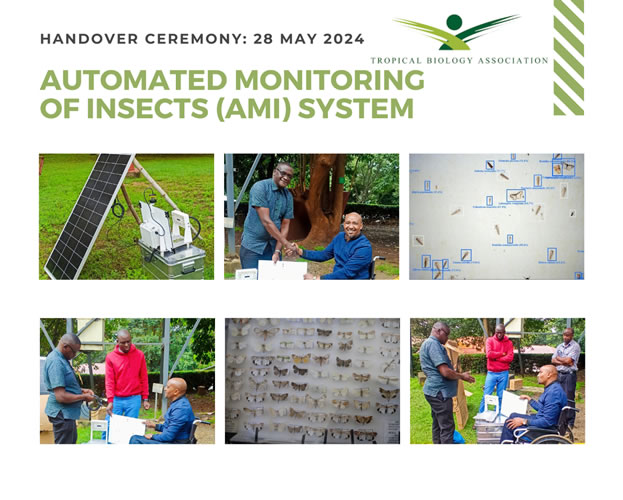
0727 933950 |
Info@embuni.ac.ke
- Home
- About Us
- Academics
- Admissions
- Library
- E-Learning
- Publications
- Media
Dr. Mark Otieno, the Director of Research and Extension at the University of Embu, has received an Autonomous Monitoring of Insects (AMI) system from the Tropical Biology Association (TBA) and the UK Centre for Ecology & Hydrology (UKCEH). This state-of-the-art equipment revolutionizes entomological research by enabling long-term, autonomous monitoring of moths in their natural habitats.
The AMI system is equipped with a robust lighting mechanism to attract insects and high-resolution cameras for detailed imaging of moth specimens. It integrates advanced technology, including computer vision and an autonomous imaging system, which ensures precise capture of moth images in the field. Additionally, innovative algorithms within the system locate moths in images and accurately classify them to the species level.
Why study moths:
Dr. Otieno has expressed profound gratitude to TBA, Dr. Rosie Trevelyan, Mr. Anthony Kuria, and the UKCEH team for their support. The AMI system allows deeper exploration of moth ecology.